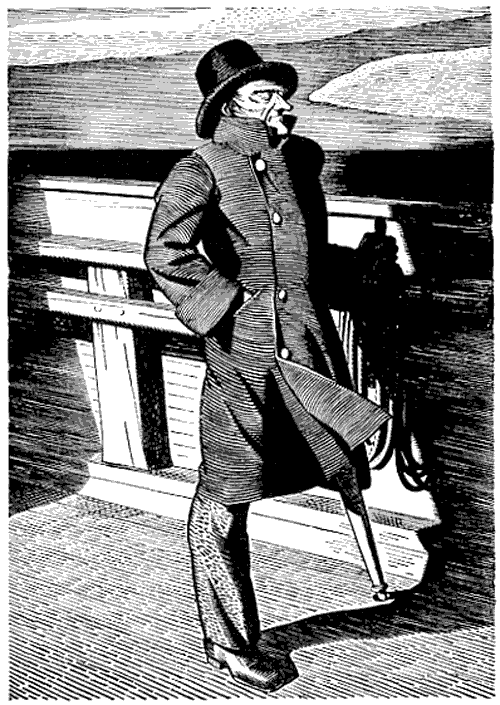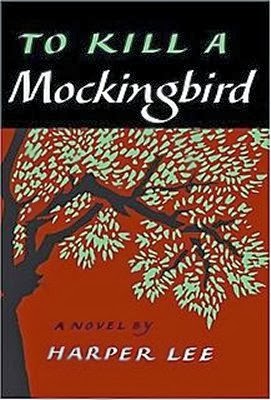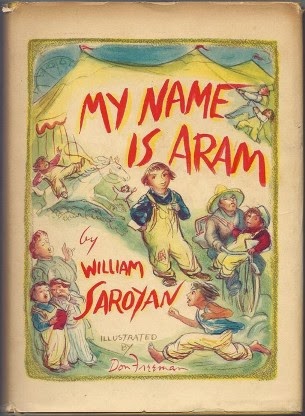@jamesscottbell
Last week’s dustup in the comments, begun by my good friend Porter Anderson, and continued by him on The Ether, may have left the impression that your humble correspondent is a dastardly assassin of literary fiction, ready to step out of the shadows with my sap and conk erudite authors on the head, stick them in the back of a sedan, and take them “for a ride.”
I plead not guilty, ladies and gentlemen of the jury, and thank you for this opportunity to set the record straight.
Let’s step back a moment: Just what is literary fiction anyway? I’m not going to attempt an all-encompassing definition. I’m not sure one exists. Sometimes it’s defined by what it is not: it is not genre fiction, for example. It is not “commercial.” Style and meaning are more prominent in literary fiction. It is “more complicated” and requires more “effort” to get into.
Whatever. My only point last week was to say that some (key word) highly lauded literary fiction seems to me to get in the way of story, not help it. I thought that was an innocent enough remark whose truth is all but self-evident. But then came the storm, and broad-brush asseverations that, even if unintentionally, splashed gooey residue upon your blameless observer.
I am thus compelled to offer evidence, which is why I now post the following. It is from a critically acclaimed literary novel. The author is highly regarded and many people love his work. My intent here is simply to point out that this is a type of writing that does not work for me.May I repeat that, please? For me. The broad brush is in the garage, unused.
It was a lone tree burning on the desert. A heraldic tree that the passing storm had left afire. The solitary pilgrim drawn up before it had traveled far to be here and he knelt in the hot sand and held his numbed hands out while all about in that circle attended companies of lesser auxiliaries routed forth into the inordinate day, small owls that crouched silently and stood from foot to foot and tarantulas and solpugas and vinegarroons and the vicious mygale spiders and beaded lizards with mouths black as a chowdog’s, deadly to man, and the little desert basilisks that jet blood from their eyes and the small sandvipers like seemly gods, silent and the same, in Jeda, in Babylon. A constellation of ignited eyes that edged the ring of light all bound in a precarious truce before this torch whose brightness had set back the stars in their sockets.
There is just too much going on in this paragraph, at least the parts of it I could understand. How did we get from the desert to a place called Jeda, wherever Jeda is? I had to look it up. It’s a village in Iran. I’m still confused. And while I’m all for specific detail in fiction, overkill dulls the effect, especially if the vocabulary is esoteric. I started to get really tired somewhere between solpugas and vinegarroons and desert basilisks. And what the heck is a chowdog? I Googled it and it’s not even a word. The closest is “chow dog,” which is a reference to a Chow-Chow, a fluffy dog with, indeed, a little black mouth. But is that what is meant here? If it is, is the juxtaposition of a stereotypical rich dowager’s pet with a poisonous lizard meaningful in this context?
Look, it could be that I’m just obtuse. But the effect, to me, is to overwhelm with sound. Maybe it’s supposed to be like a poem. But if I want to read poetry of this type, I can re-read Howl. If I’m reading a novel I want a narrative that doesn’t constantly push me into prolix potholes. This is not an isolated opinion, by the way. See, for example, the famous article “A Reader’s Manifesto.”
Now, what I alsomentioned in my post is that when style and story meet, I love it. Here are a few quick notes I jotted down as I thought about that:
Moby-Dick
Talk about your literary fiction! Talk about your bane of
high school students’ existences! But I absolutely love Moby-Dick. The style is like the ocean itself—undulating currents and crashing waves of narrative. Calms and storms and the occasional port. It’s also a whale of a story! And I love Ishmael from the start. Here’s part of page one:
Whenever I find myself growing grim about the mouth; whenever it is a damp, drizzly November in my soul; whenever I find myself involuntarily pausing before coffin warehouses, and bringing up the rear of every funeral I meet; and especially whenever my hypos get such an upper hand of me, that it requires a strong moral principle to prevent me from deliberately stepping into the street and methodically knocking people’s hats off – then, I account it high time to get to sea as soon as I can. This is my substitute for pistol and ball.
Compare that to the excerpt I posted above. Which one is trying to tell an actual story?
To Kill a Mockingbird
Need I say more? This book gets better with each reading. Donald Maass, Christopher Vogler and I went through Mockingbird chapter by chapter for Story Masters this year, the second time we’ve done so. I found even more richness in the text this time than last. And here’s the thing: Harper Lee never intrudes with style. For her, it’s all in the service of the story.
The Catcher in the Rye
A novel about an inner journey, usually one of the marks of lit-fic. The storytelling key, however, is that we care about Holden Caulfield. Salinger gives him attitude and confusion (the two things adolescent boys have most of) and a prep school experience that increases our sympathy for him. Without such fiction technique from the storyteller’s toolbox, the novel wouldn’t have worked.
Of Mice and Men
I remember reading this in Junior High and weeping at the end. Steinbeck had captured me with his story, and the guy won the Nobel Prize for literature. It can be done!
Ask the Dust
John Fante’s novel of Los Angeles, published in 1939, holds up as a literary classic. The style pulsates with the heart and yearning of the young writer, Arturo Bandini, bleeding on the page:
Los Angeles, give me some of you! Los Angeles come to me the way I came to you, my feet over your streets, you pretty town I loved you so much, you sad flower in the sand, you pretty town. A day and another day and the day before, and the library with the big boys in the shelves, old Dreiser, old Mencken, all the boys down there, and I went to see them, Hya Dreiser, Hya Mencken, Hya hya: there’s a place for me, too, and it begins with B, in the B shelf. Arturo Bandini, make way for Arturo Bandini, his slot for his book, and I sat at the table and just looked at the place where my book would be, right there close to Arnold Bennett, not much that Arnold Bennett, but I’d be there to sort of bolster up the B’s, old Arturo Bandini, one of the boys, until some girl came along, some scent of perfume through the fiction room, some click of high heels to break up the monotony of my fame. Gala day, gala dream!
This is so much grander than mixed metaphors offering up sound and fury, signifying nothing.
Raymond Carver
With whom I once took a writing workshop. His stories are powerful in their subtlety, and from him I learned the great value of the “telling detail.” See “Will You Please Be Quiet, Please?” for starters.
Joyce Carol Oates
It was during the Carver workshop that I read many literary short stories that have stayed with me, including “Where Are You Going, Where Have You Been?” by Joyce Carol Oates. (Maybe I like literary short stories with question marks in the titles).
Ernest Hemingway
I consider Hemingway’s stories to be among the finest in the English language. “Hills Like White Elephants” is an absolute masterpiece. Another Nobel Prize winner who told stories. Imagine that.
William Saroyan
A somewhat forgotten writer now, but in the 30s and 40s he
was considered a comet of literary genius. He didn’t stop with short stories and novels. He also wrote plays and memoirs. He won (and famously turned down) the Pulitzer Prize. I think Saroyan’s My Name is Aram is one of the best collections of short stories ever put together. The first and last stories frame the entire work in a way that inspires pure wonder in me. My beloved high school English teacher, Mrs. Marjorie Bruce, introduced me to Saroyan.
Ken Kesey
The first two pages of Sometimes a Great Notion have some of the best writing I’ve ever read. Kesey also told a great story, as Notionand One Flew Over the Cuckoo’s Nestattest.
Jack Kerouac
Even though Truman Capote famously dissed On the Road by saying it was “typing, not writing,” I do have a soft spot for Mr. Kerouac. His most famous novel has some beautiful riffs, as does The Dharma Bums. Kerouac called his literary style “Be-Bop Prose Rhapsody.”
Joan Didion
For Play It As It Lays and that irresistible opening:
What makes Iago evil? some people ask. I never ask.
I could go on, but this post is already too long. Let me conclude that my love of fiction includes the literary side of the family, too—even though some of those family members are prone to wander off by themselves, leaving readers behind. But I will always be at the house if they want to come back and offer up . . . a story.
Ladies and gentlemen, I rest my case.
So what about you? What is literary fiction in your mind? Is it your cup of tea? Does it ever frustrate you? Who sends you soaring?
Talk it up, because this is the last Kill Zone post of the year!
 I read a literary novel a few weeks ago, and it frustrated the heck out of me. There was a powerful story wanting to bust out, but I felt it was hemmed in by the author trying too hard to be, well, “literary.” There was an emphasis on style, some of it quite good. But the scenes didn’t grab me. The author wanted things implied rather than rendered dramatically on the page. That’s often a nice touch, but not for a whole book. There was too much description and narrative summary, and not enough on-the-page action and dialogue. Any momentum was stopped a few times with flashbacks (Chapter 2 being one of them; not a great place for a flashback ). The ending was ambiguous, and left me feeling nothing.
I read a literary novel a few weeks ago, and it frustrated the heck out of me. There was a powerful story wanting to bust out, but I felt it was hemmed in by the author trying too hard to be, well, “literary.” There was an emphasis on style, some of it quite good. But the scenes didn’t grab me. The author wanted things implied rather than rendered dramatically on the page. That’s often a nice touch, but not for a whole book. There was too much description and narrative summary, and not enough on-the-page action and dialogue. Any momentum was stopped a few times with flashbacks (Chapter 2 being one of them; not a great place for a flashback ). The ending was ambiguous, and left me feeling nothing.





